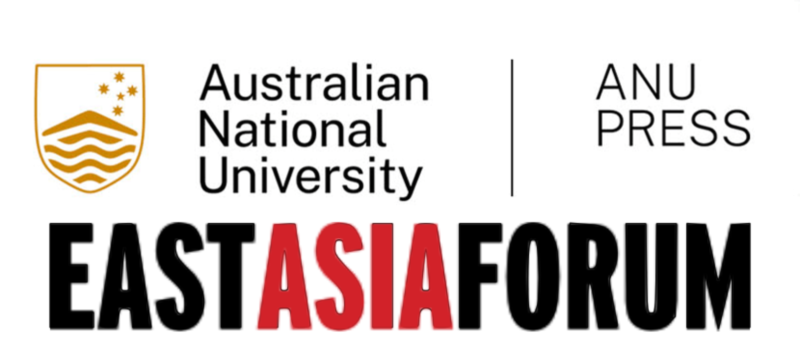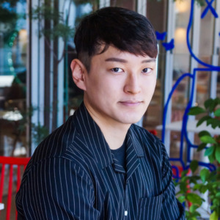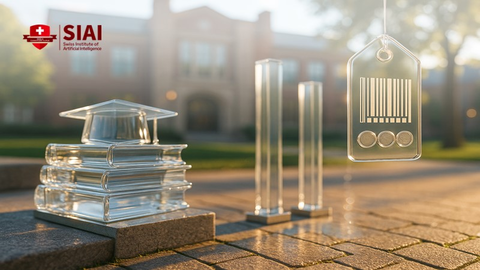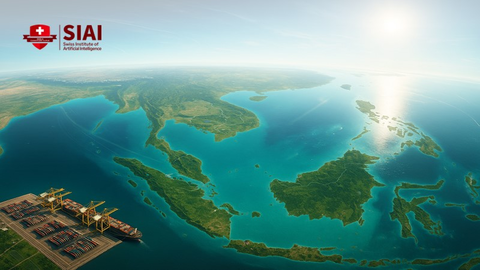[동아시아포럼] 여전한 의문, 일본과 한국의 화해
입력
수정
[동아시아포럼]은 EAST ASIA FORUM에서 전하는 동아시아 정책 동향을 담았습니다. EAST ASIA FORUM은 오스트레일리아 국립대학교(Australia National University)의 크로퍼드 공공정책 학교(Crawford School of Public Policy) 산하의 공공정책과 관련된 정치, 경제, 비즈니스, 법률, 안보, 국제관계 및 사회에 대한 분석 및 연구를 위한 플랫폼입니다.
저희 폴리시코리아(The Policy Korea)와 영어 원문 공개 조건으로 콘텐츠 제휴가 진행 중입니다.

ANU Press는 세계 최초이자 최대 규모의 오픈 액세스 대학 언론사입니다. 아시아 및 태평양 연구, 호주 정치, 인문학, 예술, 원주민 연구, 과학 등 광범위한 주제에 대해 동료 심사를 거친 연구를 출판합니다. 2004년에 설립된 ANU Press는 오픈 액세스 학술 분야의 혁신에 자부심을 가지고 있습니다. 현재까지 ANU Press는 1,000개 이상의 출판물을 발행했습니다.
한일 관계는 너무 오랫동안 험난한 길을 걸어왔다. 양국은 경제적으로 선진화된 민주주의 국가이자 북한과 중국에 대한 안보 우려를 함께하는 미국의 동맹국이지만, 일본의 한반도 식민지배(1910-1945년)의 역사가 양국 관계를 계속 괴롭히고 있다. 3월 16일 도쿄에서 열린 기시다 후미오 일본 총리와 윤석열 한국 대통령 간의 정상회담은 긍정적인 진전을 이루었지만, 화해의 정치적 지속 가능성은 여전히 의문이다.
가장 큰 쟁점은 일본 기업에 강제 징용된 한국인 노동자와 2차 세계대전 당시 일본군에게 성적 서비스를 제공하도록 강요당한 '위안부'에 대한 보상 문제다. 일본의 공식 입장은 1965년 한일기본조약으로 식민지 시대 양국 간의 모든 문제가 해결되었다는 것이다. 한국인들은 1965년 협정이 위안부 및 강제징용 문제를 적절히 다루지 못했다고 생각한다.
정상화 협정의 일환으로 일본은 한국에 3억 달러의 보조금, 2억 달러의 정부 유상 차관, 3억 달러의 일본 은행 민간 대출 등 경제 협력을 제공했다. 그러나 한국 정부는 이 자금을 개인 피해자에 대한 보상보다는 경제 개발 프로젝트에 주로 사용했다. 1987년 한국이 민주화되면서 새로운 정치적 공간이 열리기 시작했고, 강제징용 피해자와 위안부 피해자들의 목소리를 들을 수 있게 됐다.
일본은 법적 의무를 다했다고 주장하면서도, 위안부 문제를 도덕적 차원에서 특별 사례로 다루기로 결정했다. 일본은 아시아 여성 기금(1995~2007년)을 설립하여 일본 국민으로부터 모금한 기부금과 일본 정부의 의료 등 특정 사업에 대한 기부금으로 위안부 할머니들에게 보상을 제공했다. 2015년 위안부 합의에 따라 한국 정부는 위안부 피해자 지원을 위한 재단을 설립했고, 일본 정부는 위안부 문제의 '최종적 및 불가역적' 해결을 위해 일회성 기금을 출연했다.
안타깝게도 이러한 이니셔티브는 위안부 할머니들을 분열시켰다. 일부는 지원금을 받아들였다. 다른 이들은 일본 정부가 법적 책임을 회피하고 있으며, 1993년 고노 담화 이상의 명시적인 법적 책임 인정과 사과를 원하며 직접 보상을 지급해야 한다는 이유로 이를 거부했다. 2015년 위안부 합의에 대한 한국 내 여론이 좋지 않았기 때문에 문재인 정부는 화해치유재단을 해산하고 사실상 합의를 파기했다.
보상을 거부한 위안부 피해자들과 강제징용 피해자들은 수년간 법원을 통해 정의를 찾기 위해 노력해 왔다. 이들의 노력으로 2018년 미쓰비시중공업과 신일본제철에 소수의 생존 강제동원 피해자에게 배상할 것을 명령한 한국 대법원의 획기적인 판결을 비롯해, 한국 법원에서 일련의 일관성 없는 판결이 잇달아 나왔다. 그러나 일본은 법적 책임을 다했다는 입장을 고수하며 이러한 판결이 국제법과 1965년 조약에 위배된다고 주장하면서 상황은 교착 상태에 빠졌다.
2019년에는 일본이 반도체와 스마트폰 화면 제조에 사용되는 핵심 화학물질에 대한 한국 수출 규제를 시행하면서 양국 관계가 정상화 이후 최저점을 기록했다. 일본은 한국이 이중 군사 용도로 사용되는 화학물질을 북한 등 제3국으로 재수출하는 것에 대해 적절한 통제를 하지 않고 있다고 주장했지만, 사실상 이는 아베 신조 전 총리가 정치적으로 이용한 것이며, 일본 기업에 대한 한국 법원 판결을 향한 보복으로 여겨졌다. 그 후 문재인 정부는 북한과 북한의 미사일 및 핵 위협에 대한 정보공유의 핵심 메커니즘인 한일군사정보보호협정(지소미아)에서 탈퇴하겠다고 위협했다.
이런 상황에서 윤 정부는 교착 상태를 풀기 위해 과감하게 움직였다. 강제징용 피해자들과 비공개 협의를 시작했고, 철강업체 포스코 등 일본 경제협력기금의 혜택을 받은 한국 기업들을 포함해 자발적인 민간 출연금을 활용한 기금 조성 아이디어를 공론화하기 위한 협의 과정을 거쳤다. 그런 다음 이러한 협의 결과를 일본 정부에 제시하고 일본 기업이 '자발적' 출연과 사죄로 보답하는 것이 피해자와 한국 정부의 동의를 얻는 데 중요하다는 점을 강조했다.
다니엘 스나이더가 설명했듯이, 기시다 총리는 지금까지 일본이 보답할 방법을 찾지 못했지만 윤 대통령의 도박은 '지난 5년간의 역기능으로 인해 쌓인 많은 찌꺼기들을 (양국 관계에서) 제거'했다. 또한 윤 대통령과 기시다 총리의 정상회담은 '해야 할 일의 상당 부분을 해결했고, 양국 정상 간 정례 회담을 복원하고 2019년부터 시행된 맞대응 무역 조치를 철회했으며, 두 정상은 북한에 대한 대응을 최우선으로 하는 공동 안보 의제를 수용하고 군사정보보호협정 정보공유 약정'의 운영을 재확인했다'.
이는 미국 바이든 행정부에 반가운 소식이다. 취임 이후 한미일 3국 안보 협력 강화를 끊임없이 촉구해왔기 때문이다. 그러나 기시다 총리와 윤 대통령의 정상회담에 대한 미국의 대대적인 지지는 시기상조일 수 있다. 한국 여론조사에 따르면 국민의 59%는 한국 기금만으로 강제징용 피해자들에게 보상하겠다는 윤 대통령의 계획에 반대하며 일본으로부터 직접 보상을 원하고 있다.
이제 문제는 기시다 총리가 미국의 막후 압력에 의존하지 않고 양국의 대중과 엘리트층의 지지를 받는, 보다 장기적이고 지속 가능한 화해의 기반을 구축할 수 있는 방법을 찾을 수 있을지 여부와 그 방법이다.
기시다 총리가 직면한 이러한 장애물을 극복하기 위해서는 상당한 노력이 필요할 것이다. 스나이더의 말처럼 기시다 총리는 '2015년 외무상 시절 한국 위안부에 대한 보상 및 사과 합의로 인한 논란으로 인해 역사 문제에 대한 양국 간 합의를 경계'하고 있는 것으로 보인다. 기시다 총리는 또한 역사 수정주의와 부정주의가 팽배한 세이와 정책연구회 등 보수 민족주의 세력이 지배하는 집권 자민당 내 계파 정치의 미묘한 균형에 얽매여 있다.
윤 대통령의 결단력 있는 협력 증진 행보로 '한일 관계의 화해와 정상화의 문이 열렸지만... 역전의 위험은 여전히 남아있다'는 평가가 나오고 있다. 이제 기시다 총리가 올해 말 서울을 방문해 그날을 붙잡을 수 있을지에 기대가 모인다.
Japan and South Korea’s rapprochement still begs questions
Japan–South Korea relations have been on a rocky road for far too long. While both countries are economically advanced democracies and US allies with common security concerns about North Korea and China, the history of Japan’s colonisation of the Korean peninsula (1910–1945) continues to haunt their relations. The recent summit meeting between Japanese Prime Minister Fumio Kishida and South Korean President Yoon Seok-yul in Tokyo on 16 March produced some positive steps forward, but the political sustainability of the rapprochement is still in doubt.
The biggest points of contention are the issues of compensation for Korean labourers forced to work for Japanese companies and ‘comfort women’ forced to provide sexual services to Japanese soldiers during the Second World War. Japan’s official position is that the 1965 Basic Treaty normalising relations settled all issues between the two countries during the colonial period. South Koreans consider that the 1965 agreement did not adequately address the comfort women and forced labour issues.
As part of that normalisation deal, Japan provided South Korea with economic cooperation (US$300 million in grants, US$200 million in soft government loans and US$300 million in private loans from Japanese banks). But the South Korean government used that money mostly for economic development projects rather than to compensate individual victims. After South Korea democratised in 1987, new political space began to open, enabling the forced labourers and comfort women to be heard.
While Japan maintains that it has met its legal obligations, it decided to treat the comfort women issue as a special case from a moral perspective. It established the Asian Women’s Fund (1995–2007), which provided compensation to the comfort women from donations solicited from the Japanese public as well as contributions from the Japanese government for specific projects such as medical care. Under a 2015 comfort women agreement, the South Korean government established a foundation to support the comfort women, and the Japanese government made a one-time contribution to ‘finally and irreversibly’ resolve the issue.
Unfortunately, these initiatives divided the former comfort women. Some accepted the payments. Others rejected them on the grounds that the Japanese state was avoiding its legal responsibility and should pay direct compensation, wanting an explicit legally-based admission of guilt and an apology beyond that made in the 1993 Kono Statement. So unpopular was the 2015 comfort women deal in South Korea that the Moon government disbanded the foundation, which effectively terminated the agreement.
Comfort women who rejected compensation and forced labourers have spent years seeking justice through the courts. Their efforts have resulted in a series of inconsistent rulings in South Korean courts, including a landmark judgement in the South Korea Supreme Court in 2018 ordering Mitsubishi Heavy Industries and Nippon Steel to provide compensation to a handful of surviving victims of forced labour. But since Japan maintains its position that it has met its legal responsibilities and argues that such rulings are a violation of international law and the 1965 treaty, the situation remained at an impasse.
In 2019, relations hit their lowest point since normalisation when Japan imposed export restrictions on key chemicals used in manufacturing semiconductors and smartphone screens to South Korea. Japan claimed that South Korea was failing to exercise appropriate controls on the re-export of the chemicals, which have dual military applications, to third countries such as North Korea, but the move was politicised by former prime minister Shinzo Abe and seen as retaliation for the South Korean court rulings against Japanese companies. The Moon government then threatened to pull out of the Japan–ROK General Security of Military Information Agreement, a key mechanism for sharing intelligence about North Korea and its missile and nuclear threats.
Against this background, the Yoon government moved boldly to try and resolve the stalemate. It set up private consultations with the forced labour victims and conducted a public consultative process to sound out the idea of a fund drawing on voluntary private contributions, including from South Korean firms that benefited from Japan’s economic cooperation funding, such as steelmaker POSCO. It then showed the results of these consultations to the Japanese government and underlined the importance of Japanese companies reciprocating with their own ‘voluntary’ contributions and apology for the deal to gain acceptance from the victims and the South Korean public.
As Daniel Sneider explains in this week’s lead article, although Kishida has so far failed to find a way for Japan to reciprocate, Yoon’s gambit ‘cleared away much of the accumulated debris of the last five years of dysfunctionality [in the relationship]’. The Yoon-Kishida summit ‘checked off a substantial list of to-do items. It restored regular meetings between the leaders of the two countries and rolled back the tit-for-tat trade measures in place since 2019. The two leaders embraced a shared security agenda, topped by countering North Korea, and reaffirmed the operation of the General Security of Military Information Agreement intelligence-sharing pact’.
This is welcome news to the Biden administration in the United States. Since taking office, it has relentlessly urged the need for deeper US–Japan–ROK trilateral security cooperation. But loud US support cheering on the Kishida–Yoon summit may be premature. Polls in South Korea show that 59 per cent of the public oppose Yoon’s plan to compensate the forced labourers from an exclusively South Korean fund — they want compensation directly from Japan.
The question now is whether and how Kishida might find a way for Japan to reciprocate and build a basis for a more long-term and sustainable rapprochement that receives public and elite acceptance in both countries without relying on behind-the-scenes pressure from the United States.
These hurdles that Kishida faces will take some effort to overcome. As Sneider says, Kishida appears to be ‘wary of bilateral agreements on history issues due to the controversies which arose from the 2015 compensation and apology deal for South Korean “comfort women” he reached as foreign minister’. Kishida is also bound by the delicate balance of factional politics in the ruling Liberal Democratic Party, dominated by conservative nationalist factions such as the Seiwakai which are overrun by historical revisionism and denialism.
While Yoon’s decisive moves to foster cooperation have opened ‘the door to rapprochement and normalisation of South Korea–Japan relations … the perils of reversal remain’. Hopes now hang on a visit by Kishida to Seoul later this year to seize the day.





















